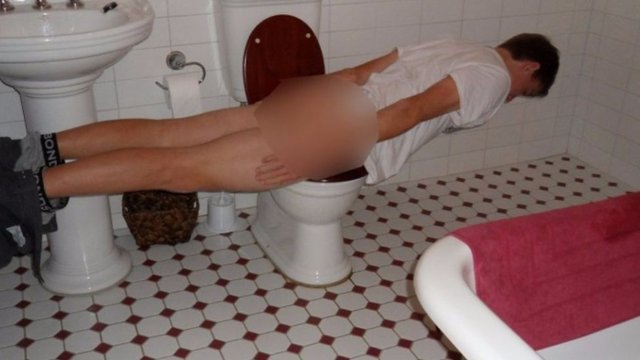
Assertion
''Because standing pee causes cancers such as prostate cancer in men, they need to squat like women.''
Real What?
No research has found any significant association with male voiding of urine and any disease, including prostate cancer.
Origin of the Claim
Although it is possible to follow the origins of the claims of standing pee to pre-medieval mythologies and beliefs, a bill that originally made its place in popular culture in 2012 forced Sweden's Sörmland City Council temporary member Viggo Hansen to sit in the council building toilets and pee in the council building toilets. received. As the rationale for this internationally acclaimed proposal, Hansen proposed three things: toilets could be kept much cleaner, reduce the risk of prostate cancer in men and, finally, improve men's sex life. rates will increase. The other two have no scientific validity.
Information
For a long time, there was no remarkable, peer-reviewed research article published in the academic journal, as the subject was not even taken seriously by scientists. For this reason, people formed the basis of their claims based on ancient advice. However, a comprehensive meta-analysis and a systematic review article published in the prestigious journal PLoS ONE on July 22, 2014 put an end to the debate. The study was conducted by researchers from the Department of Urology at the University of Leiden Medical Center in the Netherlands. The team controlled 3 key factors affecting urinary dynamics (urodynamics) in a controlled manner: maximum flow rate, discharge time (time to void), and post-discharge volume (amount of urine remaining in the bladder). In the study, it was not possible to detect the slightest difference between these variables between men who sat and pee without sitting. In other words, sitting pee had no effect on the dynamics of urine that would affect the disease state. Sitting peeing was no better in terms of health than standing peeing.
The same study showed that men with lower urinary tract symptoms had only 25 milliliters of urine remaining, had a slightly stronger urine flow, and peed only 0.62 seconds faster than sitting. But none of these were shown to be statistically significant. So the difference was no more than a random difference. It had no scientific meaning. Moreover, he did not provide any data that would require a healthy man to normally sit and pee.
All examinations on the PubMed site, which aggregate medical articles, do not show a single article or finding that shows that sitting voiding has any effect on reducing prostate cancer or improving sex life. Therefore, these two claims have no scientific validity. Professor of urology at the University of Pittsburgh. Benjamin Davies says:
''The claim that sitting peeing will have any benefit in terms of human health or sex is a nonsense of nonsense. There is no connection between pee and sex. Moreover, there is no reason to make any contribution to the prostate. If you are a healthy man, your prostate muscles will already relax during urination. Sitting peeing is a cultural or psychological choice; it has nothing to do with health. If you're tired, have a seat.''
Apart from all this, the claim that sitting peeing is also healthy in terms of toilet hygiene is a highly questionable claim. The most important reason for this is that the anatomy of human men makes it possible for them to normally pee by sitting in the toilets or alafranga toilets. The penis of a seated man will look largely in the opposite direction, unlike the vagina of a seated woman. Therefore, in a natural sitting position, it is not possible to urinate on the toilet without touching the penis by hand. This makes sitting and standing peeing indistinguishable from the standpoint of hygiene. Second, the sources of disease in public toilets are often germs that accumulate on the toilet seats. Sitting on them just doesn't make much difference from removing an eye while making an eyebrow, just to prevent urine splashing around. Thirdly, and most importantly, the most responsible for splashing urine in toilets and urinals is the process of shaking the penis after voiding and shedding the last urine drops remaining in the urinary canal. During this culturally learned behavior, the urine also bounces out as the penis is shaken uncontrollably. Even though urine is not a clean / sterile chemical, as it was previously claimed and still taught in many medical schools, it is not that nasty in contrast to what its smell, appearance and culture teach. Therefore, regular toilet cleaning is more important than males in sitting and peeing. Sitting peeing will not directly contribute to hygiene.